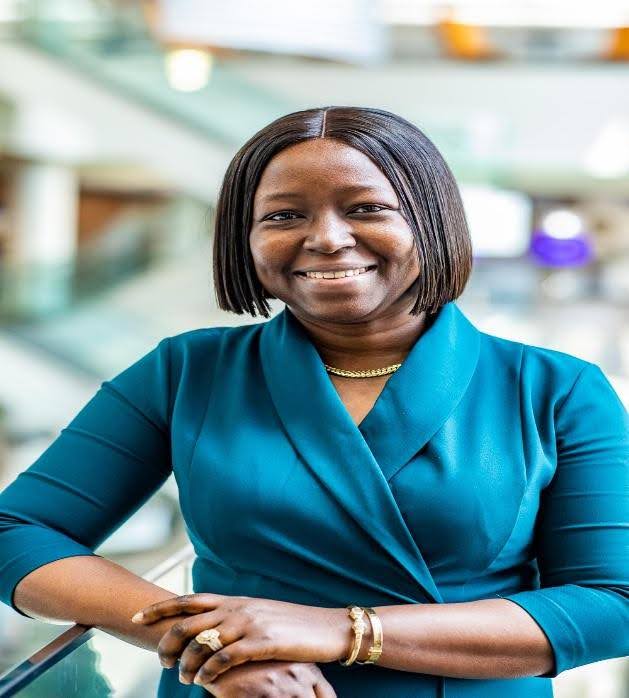Few professionals bring together deep technical knowledge and practical business impact the way Olufunmilayo Ogunwole does in today’s fast-moving world of global trade and digital operations. With roots in Nigeria and a career that spans continents, she is helping organizations build smarter, faster, and more resilient supply chains, one process at a time.
As a data scientist and supply chain strategist, Olufunmilayo focuses on solving complex challenges with simple, clear solutions. She builds tools that automate repetitive tasks, develops systems that help teams make better decisions, and uses data to create transparency across every part of the supply chain.
Olufunmilayo’s work is especially relevant to companies navigating digital transformation in logistics, transportation, and public infrastructure. Global players like FedEx, Maersk, and Network Rail face increasing pressure to balance automation with cybersecurity, policy compliance, and workforce readiness. For example, FedEx continues to modernize its global logistics operations using AI and predictive analytics to optimize routing and track shipments in real time. Maersk invests heavily in digital freight platforms and blockchain-based trade documentation to streamline cargo handling and reduce fraud. In the UK, Network Rail integrates remote monitoring, automation, and cybersecurity frameworks to secure critical rail infrastructure. Olufunmilayo’s framework supports these types of organizations by providing scalable strategies that align digital systems with skilled human oversight, enabling smoother implementation, risk reduction, and long-term resilience.

Olufunmilayo Ogunwole
She has managed supply chain operations across Nigeria with impressive results. In her roles in Nigeria, she handled logistics processes nationwide with significant changes to the organization’s processes.
Olufunmilayo is not just active in the workplace; she also contributes to global research. She has co-authored several research papers, with the recent academic paper titled “A Conceptual Model for Balancing Automation, Human Oversight, and Security in Next-Generation Transport Systems.” The paper, published in the Journal of Frontiers in Multidisciplinary Research, explores how digital tools like AI and blockchain can be used safely in modern transportation networks.
It highlights the growing risk of cyberattacks in transport systems and calls for stronger workforce training, better policy compliance, and improved coordination between government and industry. Olufunmilayo brings a practical voice to these discussions, reminding readers that even the smartest systems need people who are trained, ready, and supported.
The practical implications of this research are far-reaching. Transportation agencies and supply chain operators can use the model to improve cybersecurity while rolling out new technologies. By adopting the framework, organizations can build teams that understand both the technical systems and the regulatory rules they must follow. This helps reduce cyber risks, avoid disruptions, and ensure that automation enhances rather than replaces human oversight. The study provides a clear, actionable guide for aligning workforce training, leadership commitment, and digital investment in ways that improve resilience and public safety.
For businesses in emerging markets, which often face limited access to cybersecurity expertise and lack strong digital infrastructure, Olufunmilayo’s model offers an accessible and adaptable approach. Her research addresses the unique operational and compliance challenges faced by organizations in developing regions, where digital adoption is growing but regulatory frameworks remain underdeveloped. By focusing on workforce readiness, policy literacy, and scalable implementation, she ensures that her model can be applied not only in large international logistics networks but also in smaller regional transport systems and public agencies. This broad applicability further emphasizes the global relevance of her work, as organizations across continents can benefit from adopting her strategies.
Moreover, Olufunmilayo’s focus on integrating continuous monitoring, workforce development, and automation into a unified cybersecurity framework marks a shift in how the industry approaches digital transformation. Rather than reacting to disruptions, her model equips organizations to prevent them through proactive planning and data-informed operations. With the rise of connected transport systems, autonomous vehicles, and IoT-driven logistics, this approach helps stakeholders anticipate threats and build resilience before incidents occur.
For businesses in the UK, adopting Olufunmilayo’s framework also aligns with the country’s broader goals of improving digital infrastructure security, building workforce resilience, and ensuring that organizations remain competitive in a rapidly evolving logistics and mobility landscape. The implementation of such strategies will enhance the integrity of UK transport and logistics systems, making them more attractive to international investors and partners. It also supports the UK’s national efforts toward smart infrastructure, regulatory compliance, and seamless data governance across borders, especially vital as post-Brexit logistics frameworks continue to evolve.
In the United States, the model supports efforts to modernize critical infrastructure and strengthen cybersecurity through workforce capacity-building. For the EU and Asia, it provides a roadmap for regulatory alignment and secure digital transformation. From Lagos to London, from Minneapolis to Manila, the practical value of her work is already making an impact, and the global future of smart, secure transportation is better for it.
She combines her technical expertise with strong leadership and communication skills. Whether training staff, designing HR dashboards, or managing reverse logistics, she focuses on clarity, collaboration, and results. Her approach brings out the best in teams and builds systems that last.
She is also pursuing a Master of Science in Supply Chain Management at the University of Minnesota’s Carlson School of Management, further deepening her knowledge while staying active in the field.
Olufunmilayo Ogunwole represents a new kind of leader, one who blends hands-on experience with deep technical knowledge, and who puts people at the center of innovation. Her work shows that technology is not just about machines or software, it is about solving real problems for real people.
In a world where supply chains are under pressure from global change, rising costs, and cybersecurity risks, her steady, thoughtful leadership offers a roadmap for resilience. Olufunmilayo is not just keeping up; she is quietly setting the pace.


































